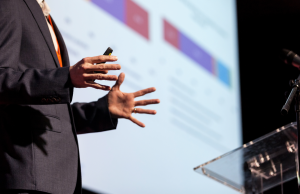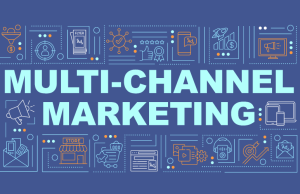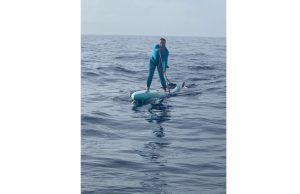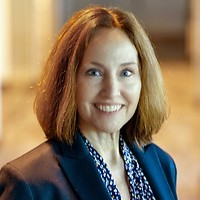Siobhan Boyd-Nelson is at her third development position in Columbus, Ohio, after practicing law for almost five years. She’s been to fundraising conferences and taken classroom-style courses related to her professional work in fundraising and development.
But, this year is different. She’s among 24 development directors in the first Resources Leaders cohort, a fellowship launched this year by the Rockwood Leadership Institute.
“We often silo fundraising. This is definitely positioning to be leaders in the movements themselves,” Boyd-Nelson said. “All of the professional development I’ve done, this is one that was most personal to me as a leader, where I felt the most personal growth. I know that skills growth is coming and personal growth was foundational. It’s definitely unique,” she said.
Resource Leaders is specifically for fundraisers in progressive movements who often grapple with things like poverty, unequal distribution of wealth, working with people who are oppressed and marginalized. It can take a very different nature in those organizations, said Boyd-Nelson, who has been development director at Equality Ohio since the beginning of 2018 after more than four years at Kaleidoscope Youth Center. Prior to that, she led a $4-million capital campaign for Stonewall Columbus, a local LGBTQ community center.
The number one issue Rockwood Leadership Institute has identified with leaders they’ve worked with — in different ways, from partners and participants — is almost always racial equity or diversity. “That’s become more and more the number one issue in recent years,” said Joi Foley, senior marketing and communications manager.
Rockwood Leadership Institute has trained almost 7,000 people since it was founded in 2000. Resource Leaders was made possible with support from the Evelyn and Water Haas, Jr. Fund, which focuses on immigrant rights, gay and lesbian rights, education equity, leadership initiatives and community partnerships and initiatives.
Other new programs announced this year focus specifically on women. The Association of Fundraising Professionals (AFP) launched a mentoring and development program geared toward women in fundraising. The program is designed to provide guidance, education and leadership skills to highly talented women in the fundraising field, as part of its Women’s Impact Initiative (WII).
WII was created last year to address specific issues and challenges faced by women in the fundraising profession. The new mentoring program, which is expected to expand in 2020, is the latest facet of the WII that will provide support and guidance to women in fundraising with an interest in securing senior-level positions.

Women comprise about 70 percent of the profession but hold about 30 percent of senior-level fundraising positions. “The gender leadership gap in the profession is significant, and it will take many years to properly address the systemic deficiencies,” said Tycely Williams, CFRE, chair of the initiative.
“We’re starting by piloting and learning from this extensive mentoring program. It builds upon the success of our chapter-based mentoring while delivering upon AFP’s commitment to access. We’ve structured an educational experience that connects women to industry resources and we’re eager to test the short- and long-term impact,” she said.
The Indiana University Lilly Family School of Philanthropy will evaluate the program and measure the impact it had on participants while CFRE International will waive the initial certifi cation fee for mentees if the CFRE exam is taken within two years of graduating from the mentor-ship program.
Resource Leaders includes two, week-long residential retreats (February and May) as part of the year-long fellowship, along with webinars and personal coaching. One week in February was focused on internal leadership: what’s their vision, how do they communicate their vision, and tapping into leadership skills. A second week in May is more externally focused, examining strategic communications, digital fundraising and how to understand the full cost of work to funders and donors. There are webinars in between the two retreats and executive coaching to help as fellows go back to their organizations to create change and actualize what they’ve learned.
Participants in Resource Leaders cover their own travel costs and there’s a sliding scale fee based on an organizations’ budget. The full price of a five-day training would be $6,000. For Resources Leaders, someone at an organization with a budget of $2 million would pay $750 plus travel to participate. On the low end, a person at an organization of less than $500,000 would pay $250 plus travel. Foley said that 82 percent of participants in 2017 were able to access Rockwood for less than full tuition.
Alana Jochum, executive director at Equality Ohio, is a Rockwood Fellowship alumna, completing a program mostly for executive directors in Ohio regionally. She nominated Boyd-Nelson for the Resources Leadership fellowship.
Development directors are usually charged with raising money for the organization — with all of it resting on their shoulders. “You’re definitely feeling the weight of the world on your shoulders but you don’t necessarily get the investment of opportunities. Somehow you’re viewed as separate of what the organization does. We don’t view development that way. It’s deeply embedded in our goals,” she said.
Jochum admits she was resistant to doing Rockwood her fi rst time. “It was an entire week out of my schedule. The program was almost three weeks. Our work is so urgent and time sensitive, I was really nervous to take that time off for myself. I almost didn’t do the program because of it but I’m so glad I did,” she said. It’s one of those times when it’s better to slow down, do some of this internal work and become more efficient and faster later in how you work, she said.
The Rockwood leadership program really focuses on investing in your own self-awareness and how you lead, Jochum said. “Having that shared language, where she and I are going through practices, enhance how we interact with each other and the team as a whole,” she said, adding that it’s focused on authenticity and having “hard conversations in a loving way.”
Fundraising “is about more than one person” and development directors are not really set up for success in their organization, said Rachel Baker, director of learning and field building at the Haas Leadership Initiative, a program of the Evelyn and Water Haas, Jr. Fund.
“If you turn away from blaming development directors and away from looking at development directors as miracle workers, what’s the alternative look like,” Baker asked rhetorically. “Really, it’s more than just one person,” she said.
“There’s not really an arc of how you become a development director,” Baker said. Rockwood’s surveys indicate that lots of development directors simply fell into the role, piecing it together and trying to navigate it themselves. There’s tons of training but lots of them are 101 level, technical, one-offs; very few development directors are invited into leadership development opportunities, she said. Most leadership development is targeted at senior program staff or executive directors. “Development directors almost never get to build leadership skills that way,” she said. “For fundraisers to be successful, they need to be treated and invested in like senior organization leaders,” Baker said.
Said Jochum: “There are opportunities like Rockwood but unless you have a funder that’s willing to invest with you. It always gets back-burnered, yet it’s the most transformative part of the work. Opportunities are out there, it’s the funding, and understanding that it’s worth funding, that is lacking.











